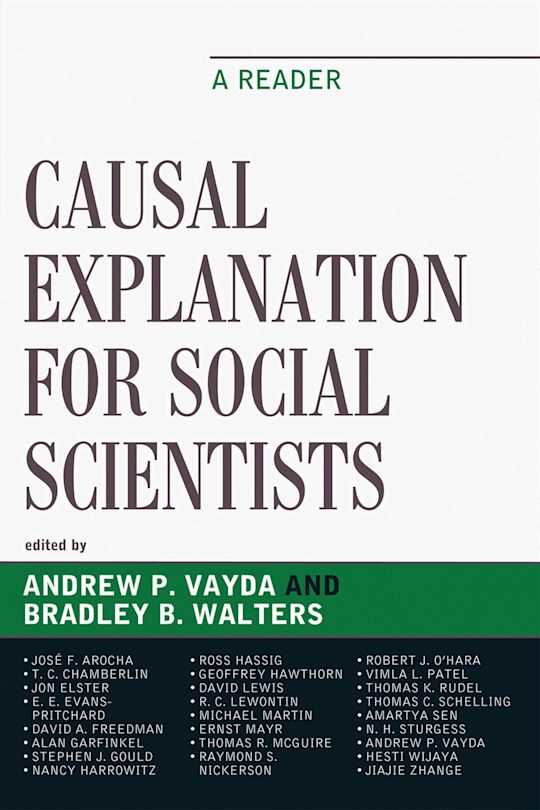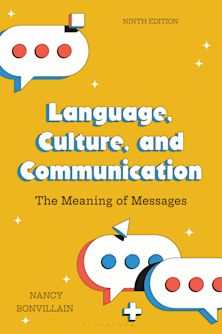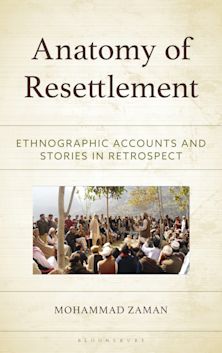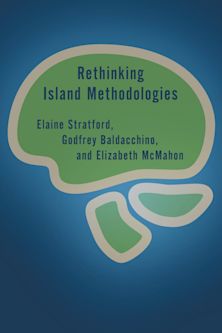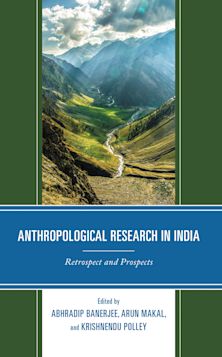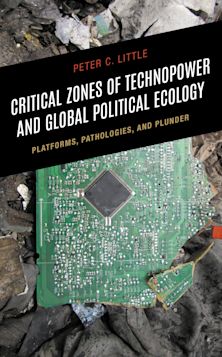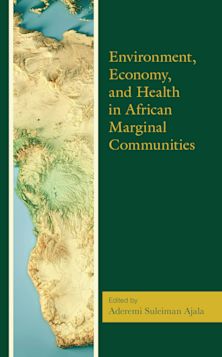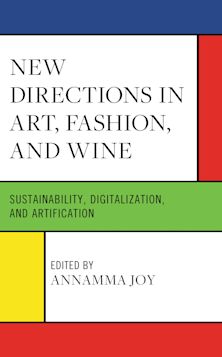- Home
- ACADEMIC
- Anthropology
- Anthropology - Other
- Causal Explanation for Social Scientists
Causal Explanation for Social Scientists
A Reader
Andrew P. Vayda (Anthology Editor) , Bradley B. Walters (Anthology Editor) , José F. Arocha (Contributor) , T C. Chamberlin (Contributor) , Jon Elster (Contributor) , E E. Evans-Pritchard (Contributor) , David A. Freedman (Contributor) , Alan Garfinkel (Contributor) , Stephen Jay Gould (Contributor) , Nancy Harrowitz (Contributor) , Ross Hassig (Contributor) , Geoffrey Hawthorn (Contributor) , David Lewis (Contributor) , Richard C. Lewontin (Contributor) , Michael Martin (Contributor) , Ernst Mayr (Contributor) , Thomas R. McGuire (Contributor) , Raymond S. Nickerson (Contributor) , Robert J. O'Hara (Contributor) , Vimla L. Patel (Contributor) , Thomas K. Rudel (Contributor) , Thomas C. Schelling (Contributor) , Amartya Sen (Contributor) , Neil H. Sturgess (Contributor) , Hesti R. Wijaya (Contributor) , Jiajie Zhang (Contributor)
- Textbook
Causal Explanation for Social Scientists
A Reader
Andrew P. Vayda (Anthology Editor) , Bradley B. Walters (Anthology Editor) , José F. Arocha (Contributor) , T C. Chamberlin (Contributor) , Jon Elster (Contributor) , E E. Evans-Pritchard (Contributor) , David A. Freedman (Contributor) , Alan Garfinkel (Contributor) , Stephen Jay Gould (Contributor) , Nancy Harrowitz (Contributor) , Ross Hassig (Contributor) , Geoffrey Hawthorn (Contributor) , David Lewis (Contributor) , Richard C. Lewontin (Contributor) , Michael Martin (Contributor) , Ernst Mayr (Contributor) , Thomas R. McGuire (Contributor) , Raymond S. Nickerson (Contributor) , Robert J. O'Hara (Contributor) , Vimla L. Patel (Contributor) , Thomas K. Rudel (Contributor) , Thomas C. Schelling (Contributor) , Amartya Sen (Contributor) , Neil H. Sturgess (Contributor) , Hesti R. Wijaya (Contributor) , Jiajie Zhang (Contributor)
- Textbook
This product is usually dispatched within 2-4 weeks
- Delivery and returns info
-
Flat rate of $10.00 for shipping anywhere in Australia
You must sign in to add this item to your wishlist. Please sign in or create an account
Description
All social scientists, despite their differences on many issues, ask causal questions about the world. In this anthology, Andrew P. Vayda and Bradley B. Walters set forth strategy and methods to answer those questions. The selected readings, all illuminating causal explanation for social scientists, are not only by anthropologists, sociologists, economists, and human ecologists but also by philosophers, biologists, psychologists, historians, and specialists in other fields. The essays will appeal to those doing applied research on practical problems as well as those seeking mainly to satisfy their curiosity about the causes of whatever events or types of events interest them.
Table of Contents
by Andrew P. Vayda and Bradley B. Walters
Part I. A Pragmatic View of Causal Explanation
Chapter 1. Causal Explanation by David Lewis
Chapter 2. The Notion of Witchcraft Explains Unfortunate Events by E. E. Evans-Pritchard
Chapter 3. Geertz and the Interpretive Approach in Anthropology by Michael Martin
Part II. Causal Histories of Events
Chapter 4. The Range and Power of Narrative Style in Science by Stephen Jay Gould
Chapter 5. Famines by Amartya Sen
Chapter 6. Analysis or Reductionism? by Ernst Mayr
Chapter 7. The Role of Fact in the Particular and the General by Richard C. Lewontin
Chapter 8. Explanatory Relativity by Alan Garfinkel
Part III. "How-Possibly" Explanations
Chapter 9. Homage to Clio, or Toward an Historical Philosophy for Evolutionary Biology by Robert J. O'Hara
Part IV. Systems and Structures
Chapter 10. Plague and Fertility in Early Modern Europe by Geoffrey Hawthorn
Part V. Theories, Generalizations, and Practical Judgments
Chapter 11. Thermostats, Lemons, and Other Families of Models by Thomas C. Schelling
Chapter 12. Rice Harvesting: A View from the Theory of Common Property by Neil H. Sturgess and Hesti Wijaya
Part VI. Causal Reasoning: Forms, Results, and Caveats
Chapter 13. Statistical Models and Shoe Leather by David A. Freedman
Chapter 14. The Method of Multiple Working Hypotheses by T.C. Chamberlin
Chapter 15. Confirmation Biase: A Ubiquitous Phenomenon in Many Guises by Raymond S. Nickerson
Chapter 16. The Last Northern Cod by Thomas R. McGuire
Chapter 17. The Body of the Detective Model: Charles S. Peirce and Edgar Allan Poe by Nancy Harrowitz
Chapter 18. Thinking and Reasoning in Medicine by Vimla L. Patel, Jose F. Arocha, and Jiajie Zhang
Chapter 19. On Types of Scientific Inquiry: The Role of Qualitative Reasoning by David A. Freedman
Chapter 20. Counterfactuals and Revisionism in Historical Explanation by Ross Hassig
Part VII. Consequence Explanations and their Misuse
Chapter 21. The Obsessional Search for Meaning by Jon Elster
Chapter 22. Confirmation Bias in Consequence Explanations by Andrew P. Vayda
Part VIII. Dos and Don'ts in Interdisciplinary Research on Causes of Events
Chapter 23. Dos and Don'ts in Interdisciplinary Research on Causes of Fires in Tropical Moist Forests: Examples from Indonesia by Andrew P. Vayda
Chapter 24. Critical Regions, Ecosystem Management, and Human Ecosystem Research by Thomas K. Rudel
Index
Product details
| Published | 16 Feb 2011 |
|---|---|
| Format | Paperback |
| Edition | 1st |
| Extent | 336 |
| ISBN | 9780759113268 |
| Imprint | AltaMira Press |
| Dimensions | 232 x 155 mm |
| Publisher | Bloomsbury Publishing |
About the contributors
Reviews
-
The volume is a compendium unlike most others. Rather than gather causal arguments about specific substantive outcomes, Vayda and Walters have assembled essays on how to question, how to reason, and why to do it a pragmatic fashion....The book is thoroughly coherent, strategically repetitive, and by no means unconvincing. Whether your field is human ecology, land change science, vulnerability research, or political ecology, there are sobering lessons here about bad methodological habits and good question writing....[I]t is hard not to come away from this collection with a renewed sense of energy and possibility. The world is filled with strange events and outcomes, after all, none of which have ready-made answers, and all of which can avail themselves to energetic observers with open minds. For a moment, viewed this way, it is possible to think that environment-society research might actually be filled with surprise. That is a welcome message.
Human Ecology









